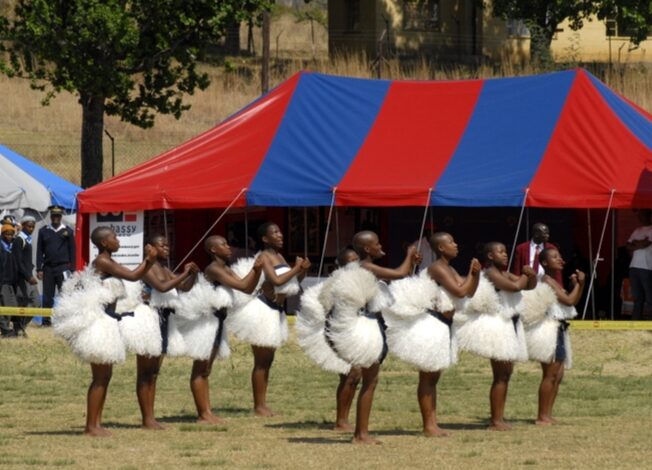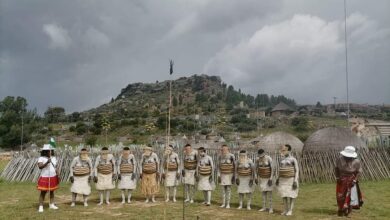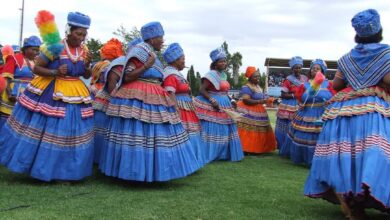Events
20 Things You Should Know About the Morija Arts & Cultural Festival

The Morija Arts & Cultural Festival is an annual celebration held in Lesotho’s historic town of Morija, showcasing the rich cultural heritage and artistic talents of the Basotho people. Here are 20 key facts about this vibrant festival:
- Inception: The Morija Arts & Cultural Festival was first launched in 1999, aiming to promote the cultural heritage of Lesotho and provide a platform for local artists.
- Location: The festival takes place in Morija, a town known for its historical significance and beautiful landscapes, making it a picturesque setting for the event.
- Duration: The festival usually spans several days, typically occurring in early October, attracting both local and international visitors.
- Cultural Showcase: The festival features a diverse array of cultural performances, including traditional music, dance, poetry, and storytelling, highlighting the artistic expressions of the Basotho people.
- Art Exhibitions: Local artists exhibit their works, including visual arts, crafts, and photography, providing a platform for emerging talents and established artists alike.
- Workshops and Masterclasses: The festival includes workshops and masterclasses conducted by experienced artists, offering participants the chance to learn new skills and techniques in various art forms.
- Culinary Delights: Attendees can enjoy traditional Basotho cuisine at the festival, with local food stalls offering a taste of Lesotho’s culinary heritage.
- Community Involvement: The festival is a community-driven event, encouraging local participation and fostering a sense of pride in Basotho culture.
- Youth Engagement: Special programs are designed for young people, promoting their involvement in the arts and cultural activities, thus nurturing future generations of artists.
- International Participation: The festival attracts artists and performers from neighboring countries and beyond, creating a vibrant multicultural atmosphere.
- Themed Events: Each year, the festival adopts a specific theme that guides the performances, exhibitions, and discussions, reflecting contemporary issues or celebrating particular aspects of Basotho culture.
- Environmental Awareness: The festival promotes sustainability and environmental consciousness, incorporating eco-friendly practices and encouraging visitors to respect the local environment.
- Cultural Workshops: In addition to visual and performing arts, the festival includes workshops on traditional crafts such as pottery, weaving, and beadwork, preserving these skills for future generations.
- Networking Opportunities: The festival serves as a networking platform for artists, cultural practitioners, and enthusiasts, fostering collaboration and partnerships within the arts community.
- Awards and Recognition: The festival honors outstanding contributions to the arts and culture through awards, recognizing the efforts of individuals and groups in promoting Basotho heritage.
- Cultural Diplomacy: By showcasing Lesotho’s rich cultural heritage, the festival acts as a form of cultural diplomacy, enhancing the country’s image on an international stage.
- Family-Friendly Activities: The festival offers a range of family-friendly activities, ensuring that visitors of all ages can enjoy the festivities.
- Volunteering Opportunities: The Morija Arts & Cultural Festival welcomes volunteers, providing them with hands-on experience in event organization and cultural promotion.
- Impact on Tourism: The festival significantly boosts local tourism, drawing visitors to Morija and contributing to the town’s economy and visibility.
- Legacy and Future: As the festival continues to grow, it aims to establish a lasting legacy in preserving and promoting the arts and culture of Lesotho for generations to come.
The Morija Arts & Cultural Festival is a vibrant celebration that reflects the heart and soul of Lesotho. By bringing together artists, performers, and audiences, it fosters cultural exchange and appreciation, making it a significant event on the regional arts calendar. Whether you’re a local resident or a traveler, attending the festival promises a rich and immersive experience in Basotho culture.
Join 'Lesotho News' WhatsApp Channel
Get breaking Lesotho news — delivered directly to your WhatsApp.
CLICK HERE TO JOIN



